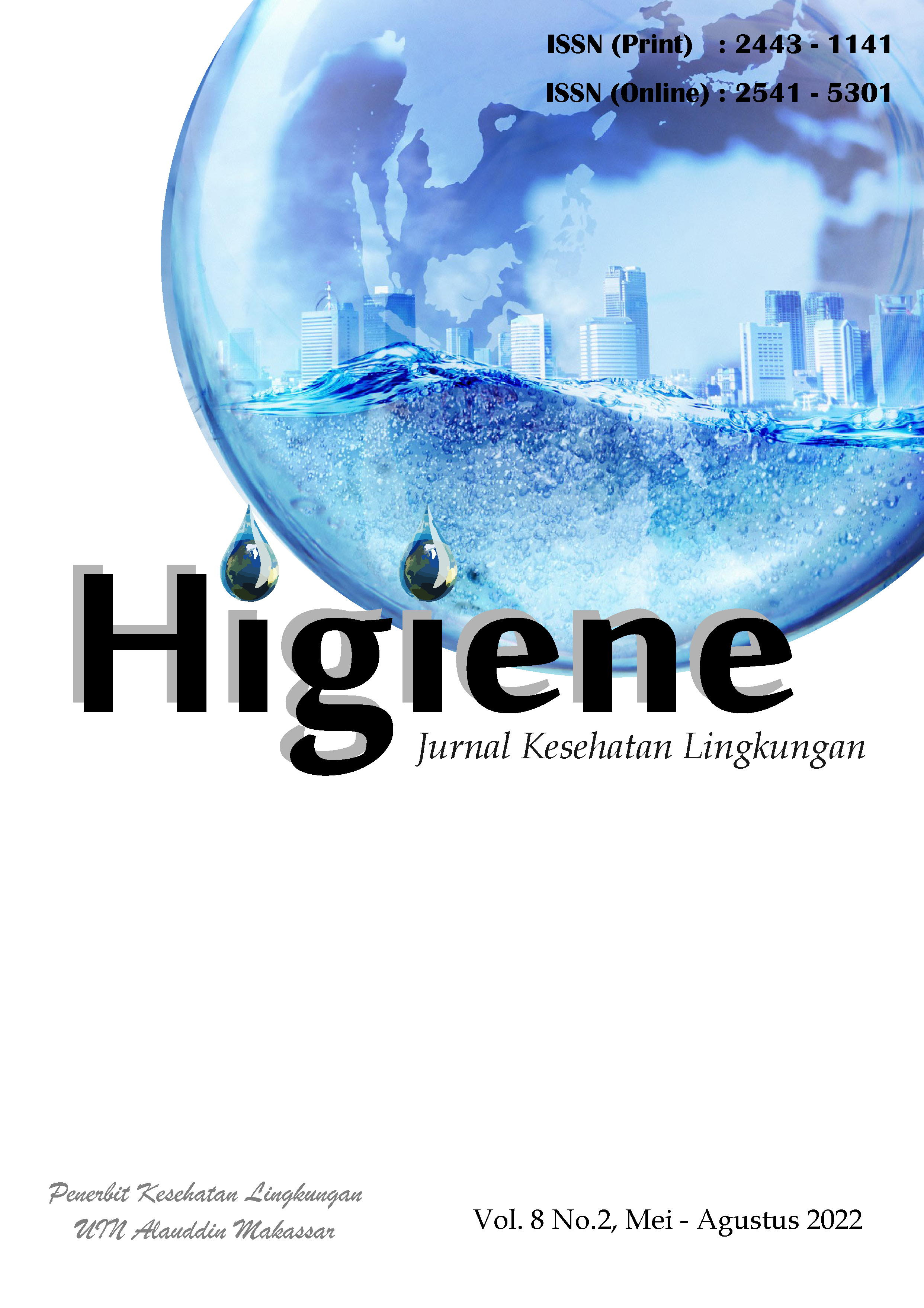Efektifitas Ketebalan Media Arang Aktif dan Zeolit Dalam Menurunkan Tingkat Kesadahan Pada Air Limbah Pada Industri Polimer
Abstract
The polymer industrial wastewater has treated the wastewater produced by WWTP and has met the requirements of the XLVII class industrial wastewater quality standards. The wastewater is planned to be reused for non-production activities such as watering plants. The purpose of the study was to determine the effectiveness of the thickness of activated charcoal and zeolite media in reducing the level of hardness in the process of utilizing wastewater into clean water at the chemicals industry. This type of research is experimental with a pretest-posttest without control research design. The population of all Wastewater in the Polymer industry; sample of some of the wastewater taken from the population, the sampling technique is grab sampling, the sample size is 36 samples totaling 19.2L. Data collection tools for hardness tester kits, thermometers, and pH meters. Data collection techniques carried out hardness checks, temperature, and pH measurements. The results of the study - the average level of hardness after treatment with variation A 142.8mg/L, variation B 224.9mg/L, variation C 339mg/L. The percentage of decrease in hardness of variations A 77%, B 65%, C 46%, there is a significant difference between various thicknesses of activated charcoal - zeolite media on hardness, all variations of activated charcoal and zeolite media thickness are effective in reducing hardness. Suggestions can be used variations of activated charcoal and zeolite ratios of 50:50, 75:25, and 25:75 to reduce the level of hardness.
Keywords: wastewater, hardness, polymer industry, filter charcoal


